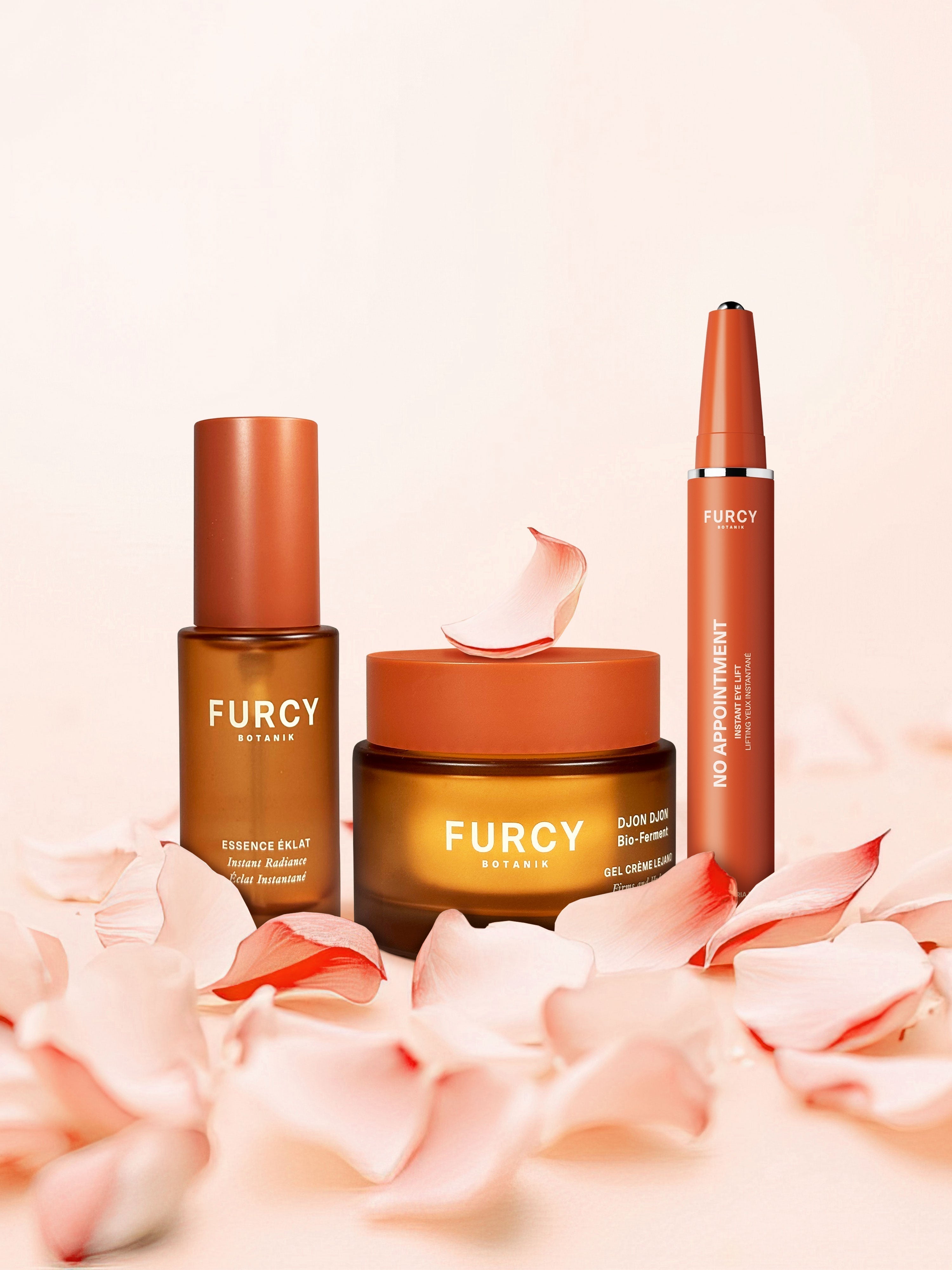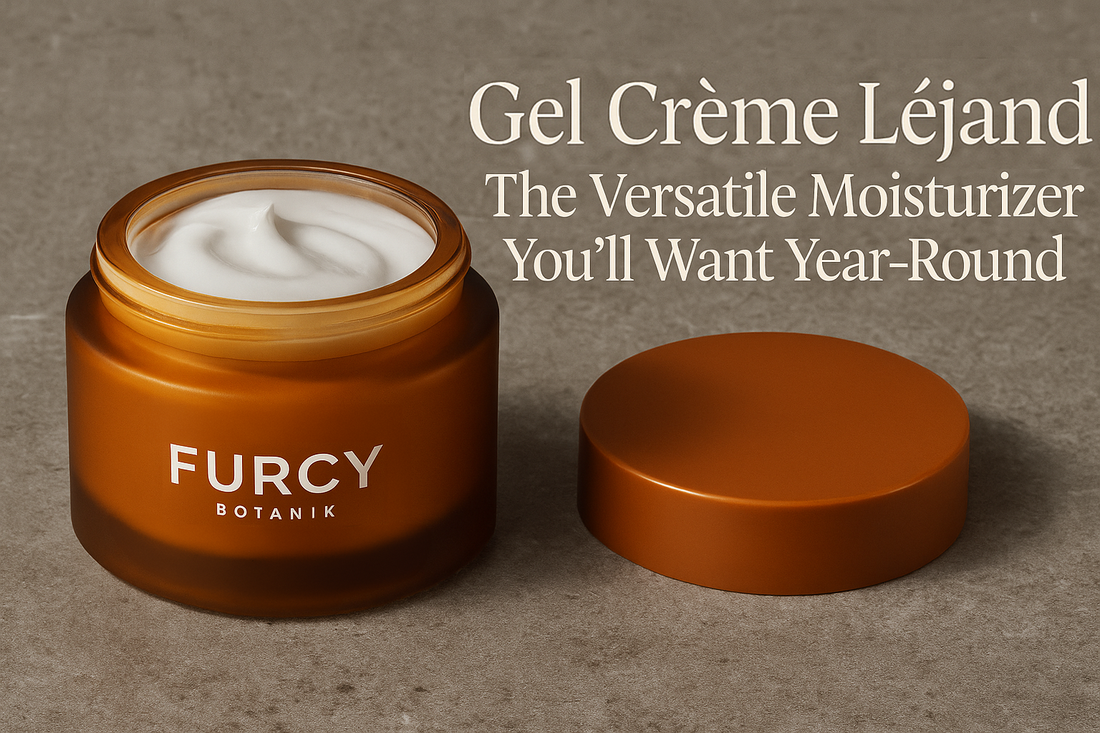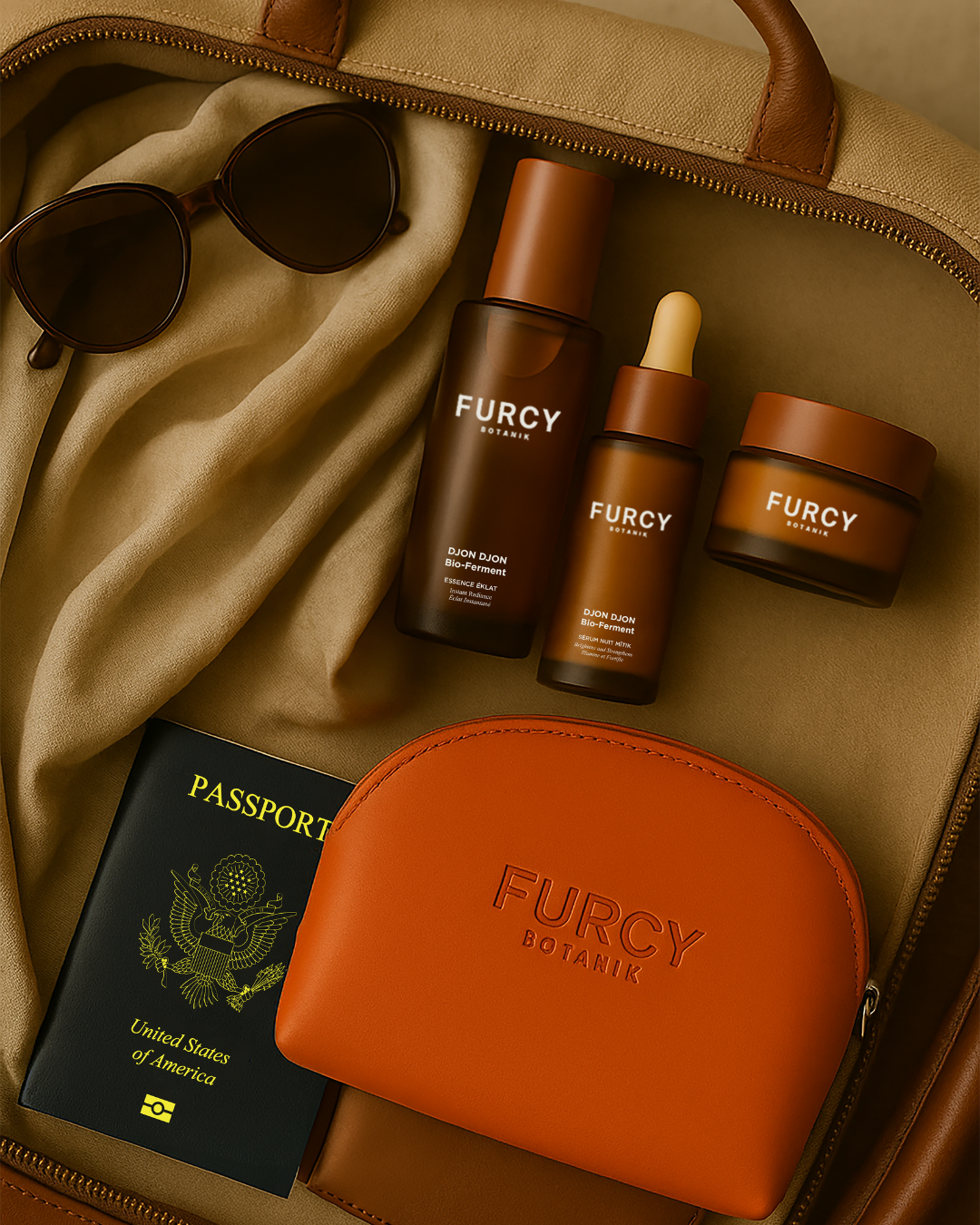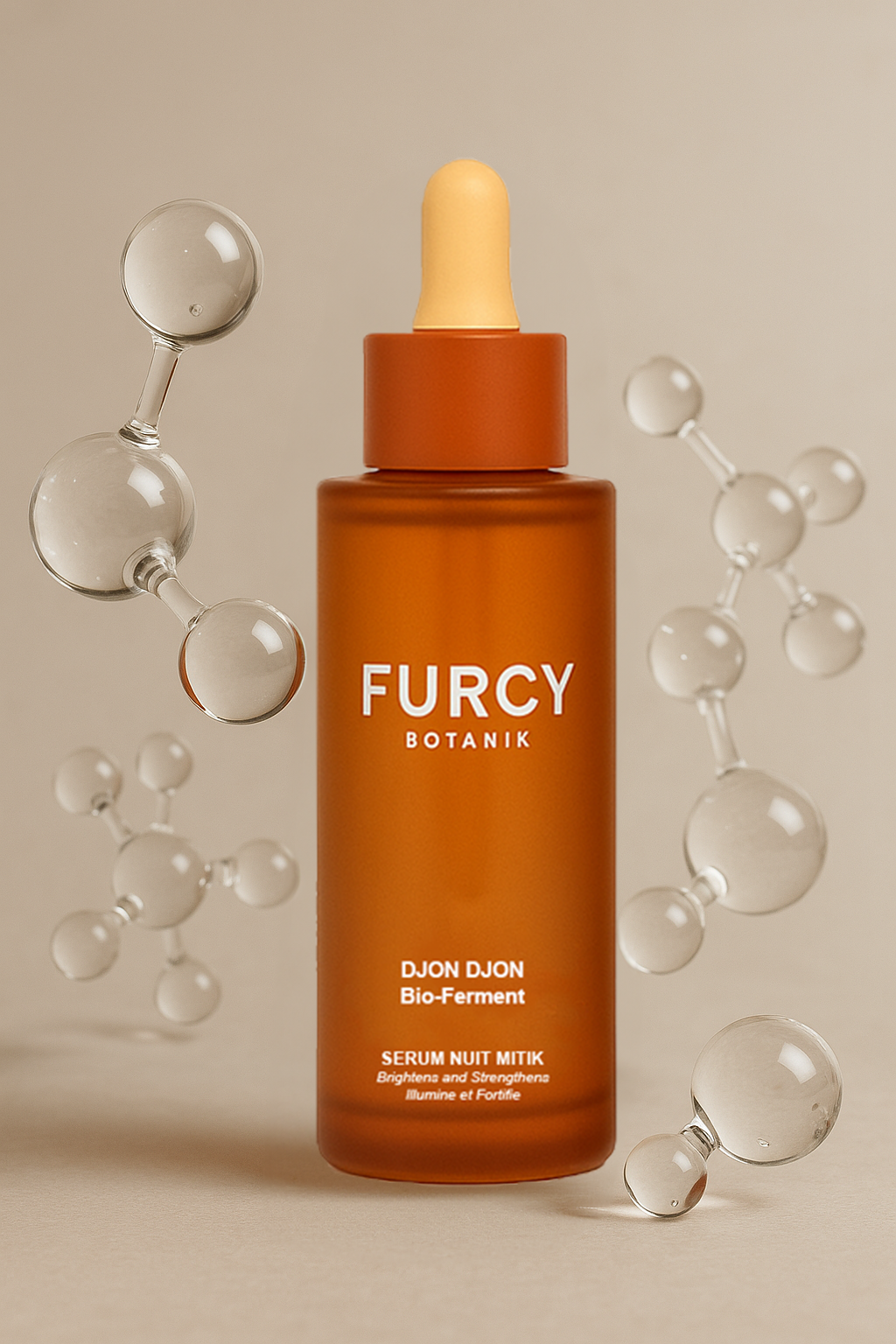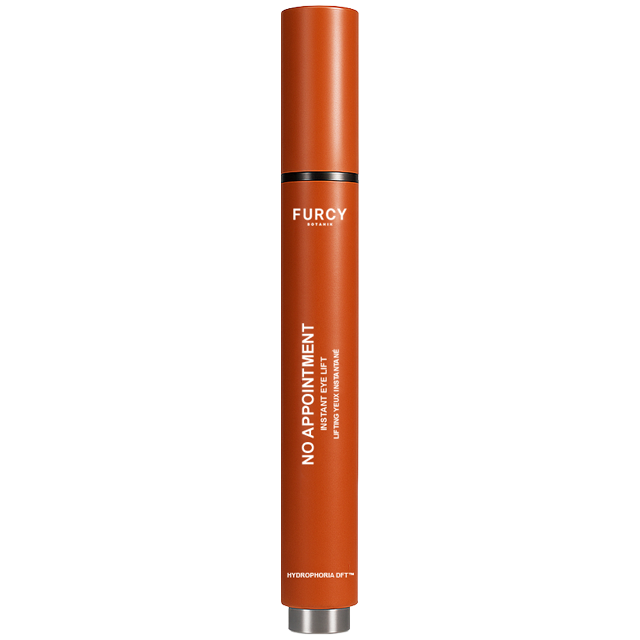Some words in the beauty world get tossed around until they lose their meaning. Botanical is not one of them, or at least, it shouldn’t be. At its core, botanical skincare is about returning to its roots. Literally, it’s a return to formulations that rely on plants: their extracts, oils, seeds, flowers, roots, all the parts that have been used for centuries to nourish and protect the skin.
But what is botanical skincare, really? And how is it different from all the other “green” terms floating around the industry? Let’s peel back the label.
Why We Can Speak On Botanical Skincare
At Furcy Botanik, botanical skincare isn’t a lane we chose, it’s the landscape we’ve always lived in. Our founders built this brand from years of studying how plant-based ingredients perform across skin types, seasons, and life stages. From Haitian-grown djon djon mushrooms to essential oils like vetiver and bergamot, every formula is rooted in our belief that skin responds best to what is already in rhythm with the body and the earth. In short.. We know our stuff!
What Is Botanical Skincare, Really?
A Definition Rooted in Nature
At its simplest, botanical skincare refers to products that use plant-derived ingredients as the base of their formulations. We're talking about ingredients that come from herbs, roots, flowers, leaves, fruits, and seeds, often minimally processed to retain their natural potency and benefits.
This approach isn’t new. In fact, civilizations have leaned on botanical ingredients for thousands of years. What’s shifted in recent years is how we extract, combine, and preserve these ingredients, blending ancient wisdom with modern science to deliver skincare that’s both gentle and high-performing.
When done right, botanical skincare focuses on efficacy, integrity, and connection to nature. It’s not just “plant-based” for marketing's sake, it’s a mindset. One that prioritizes what goes into the formula just as much as what’s left out.
Botanical vs. Natural vs. Clean vs. Organic: What’s the Difference?
In the skincare world, these terms get used interchangeably, but they’re not the same, and the differences matter:
-
Botanical refers specifically to ingredients derived from plants. Not all natural or organic products are botanical, and not all botanical ingredients are organic.
-
Natural means the ingredient comes from nature, but it can be derived from animal-, mineral-, or plant-based sources. It's a broader category, and in many markets (like the U.S.), the term isn’t regulated.
-
Clean typically refers to formulations made without potentially harmful ingredients (like parabens, sulfates, or synthetic fragrances). This term is also unregulated and varies by brand.
-
Organic means the plant was grown without synthetic pesticides or fertilizers, and it must be certified by a governing body (like USDA Organic in the U.S.). Organic doesn’t necessarily mean the product is more effective, but it does reflect how the ingredients were cultivated.
A 2023 report by Statista found that 61% of U.S. consumers consider natural ingredients important when purchasing skincare, but most also admit they’re confused by overlapping terms. That’s where clarity matters. Because what you put on your skin should never be vague.
The Rise of Botanical Beauty
The shift toward botanical skincare isn't just a trend, it’s a return. A quiet rebellion against the era of overcomplicated routines and synthetic-heavy formulas. People are craving simplicity. Transparency. A deeper connection to what they’re putting on their skin.
But this isn’t the first time we’ve looked to nature for answers. Botanical beauty has deep roots in the healing traditions of many cultures around the world. From Neem in Ayurvedic medicine to green tea in East Asian rituals, plants have always played a central role in skincare, long before lab coats entered the picture.
What’s changed is the context. We now have the science to validate the wisdom, and it’s helping us reformulate with more intention. Studies have shown that many plant extracts are rich in antioxidants, polyphenols, and anti-inflammatory compounds, all of which can help improve skin tone, reduce irritation, and protect against environmental stressors.
Today, the botanical skincare market is booming. According to a 2024 report by Grand View Research, the global botanical skincare market size is expected to reach $14.5 billion by 2028, driven by a growing demand for clean, plant-based products with functional benefits.
But with popularity comes noise, and not all products labeled “botanical” live up to the name. That’s why it matters to look past the marketing and pay attention to what’s actually in the bottle. Are the ingredients listed by their full botanical names? Are they responsibly sourced? Is the formula designed to support your skin’s health, not just its appearance?
These are the questions we ask ourselves every time we formulate at Furcy. Because botanical beauty isn’t just about using plants, it’s about honoring them.
The Benefits of Botanical Skincare (Backed by Science)
Plant-based skincare isn’t just poetic, it’s powerful. The right botanical ingredients can offer clinically supported results while remaining gentle enough for daily use.
Recent findings published in Dermatology Times show that plant-based topical products significantly improve skin hydration and elasticity, as well as reduce pigmentation and redness, all within eight weeks, with no adverse events reported. This reinforces their safety and appeal among clinicians.
Here’s why so many people (dermatologists included) are leaning into the benefits of botanicals.
Nutrient-Rich and Bioavailable
Plants are brilliant chemists. Many botanical ingredients are packed with vitamins, essential fatty acids, and antioxidants that help protect and restore the skin’s barrier.
-
Polyphenols, found in ingredients such as green tea and chamomile, are known to reduce inflammation and combat oxidative stress, a key contributor to premature aging.
-
Flavonoids offer antibacterial and calming properties, making them especially useful in acne-prone or irritated skin types.
-
Natural oils such as jojoba, almond, or vetiver often contain linoleic acid, which helps support the lipid barrier and lock in moisture.
What’s more, botanical compounds are often more bioavailable, meaning the skin can recognize and absorb them more easily. Unlike some synthetic ingredients that can sit on the surface or cause reactions, botanicals tend to work in harmony with the skin’s natural processes.
Gentle, Yet Effective
There’s a misconception that botanical skincare is somehow less potent, more about “feeling nice” than producing results. But that’s not true. When thoughtfully formulated, botanicals can rival, and even outperform, their synthetic counterparts.
For example:
-
Bakuchiol, derived from the babchi plant, has shown similar results to retinol in improving fine lines and pigmentation, without the irritation.
-
Djon Djon mushroom extract. Recent research also shows that Djon Djon ferment can help protect against oxidative stress and UVB-induced photodamage, making it a compelling botanical for preventative and restorative care.
Botanical formulations also tend to be less disruptive to the microbiome, which is crucial for maintaining a balanced and resilient complexion. Research published highlights that plant-based oils and extracts can help regulate the skin’s microbial environment and support barrier integrity without the harsh effects often associated with synthetic ingredients.
Sustainability and Skin Health
There’s a reason so many conscious consumers are drawn to plant-based skincare: it’s better for your skin and the planet. Botanicals often require fewer synthetic inputs, and many can be sourced through regenerative or small-scale farming practices that minimize environmental impact.
At Furcy Botanik, we focus on small-batch, responsibly sourced ingredients, not just for the ethics, but because we believe that skincare should feel good on your skin and in your conscience.
Plus, when you use fewer fillers and more functional ingredients, your skin gets what it needs, no more, no less.
Common Botanical Ingredients in Skincare (and What They Actually Do)
Not all botanicals are created equal, but many have earned their place in the skincare hall of fame. These are the ingredients you’ve probably seen (and maybe even used), but understanding why they work can help you build a routine with more intention.
Calendula: The Soothing Healer
Extracted from marigold flowers, calendula is beloved for its anti-inflammatory and antimicrobial properties. It helps calm redness, reduce irritation, and support wound healing, making it a favorite for sensitive or compromised skin.
Green Tea: The Antioxidant Powerhouse
Rich in polyphenols, particularly EGCG, green tea helps fight oxidative stress, reduce inflammation, and even regulate sebum production. It’s a go-to for anyone dealing with dullness, acne, or early signs of aging.
Chamomile: The Gentle Soother
Like a cup of tea for your face, chamomile extract is known for its calming effects. It contains apigenin, a flavonoid that helps reduce redness and protect against environmental damage.
Licorice Root: The Brightening Agent
If you’re dealing with uneven skin tone or hyperpigmentation, licorice root extract offers a gentle alternative to harsh brighteners. It contains glabridin, which inhibits tyrosinase (an enzyme involved in melanin production), helping to fade dark spots naturally.
Underrated Botanicals Worth Knowing (and Why Furcy Uses Them)
While the classics get most of the spotlight, there’s a whole world of lesser-known botanicals with impressive benefits, many of which have been used in traditional medicine but haven’t yet saturated the mainstream skincare scene. These are the quiet performers we believe deserve a closer look.
Djon Djon Mushroom: The Haitian Super-Mushroom
Native to Haiti, djon djon is a rare black mushroom revered in cuisine, but it turns out its skin benefits are just as compelling. Rich in essential amino acids and trace minerals, this mushroom supports collagen production, enhances elasticity, and improves hydration.
Vetiver Root Oil: A Botanical for Barrier Support
Often used in traditional healing systems like Ayurveda, vetiver has natural antiseptic and anti-inflammatory properties. But it also supports the skin’s lipid barrier, making it ideal for dryness, irritation, or acne-prone skin that needs balance rather than stripping.
Bergamot Peel Oil: Aromatherapy Meets Clarifying Skincare
Extracted from the peel of the bergamot orange, this oil has antibacterial and toning effects, helping clarify congested pores and balance oil production. Furcy uses a furocoumarin-free version to ensure it’s safe for daytime wear, all the brightening benefits, none of the photosensitivity risk.
How to Build a Botanical Skincare Ritual
Botanical skincare isn’t about chasing fast results; it’s about building a rhythm. One that supports your skin’s long-term health while giving you a moment to slow down and reconnect with yourself. When you treat skincare as a ritual, not a routine, everything shifts: your products become more intentional, your process more grounding, and the results more lasting.
Start with Intention, Not Just Ingredients
A well-crafted ritual starts with why, not what. Before reaching for another serum or cream, ask: What does my skin need today? What am I hoping to feel? This shift from outcome to experience can change everything.
In a world obsessed with “fixing,” botanical skincare invites us to nourish, support, and listen. That might look like taking 60 seconds to press a few drops of essence into your skin instead of rushing through a cleanse. Or choosing a calming product not just for your barrier, but for your nervous system, too.
At Furcy Botanik, this is the lens through which we design skincare as a moment to return to yourself, not just your reflection.
Layer Thoughtfully: A Sample Routine
A strong botanical ritual doesn’t need 10 steps. It just needs the right ones. Here’s a simple flow to build on:
1. Cleanse: Start with a gentle, non-stripping cleanser to remove buildup without disrupting your barrier.
2. Hydrate: Reach for an essence like Essence Éklat to deliver hydration deep into the skin and prep it for what comes next.
3. Treat: Apply a serum that supports your skin’s needs. Sérum Nuit Mitik is ideal at night — packed with actives that help skin repair while you rest.
4. Moisturize: Seal in moisture with something rich but breathable, like Gel Crème Léjand, which hydrates without heaviness.
Optional step: For targeted care, add a drop of No Appointment under the eyes — a botanical blend designed to brighten, lift, and soothe tired skin.
The beauty of a ritual is that it evolves. Some nights it’s all four steps. Other nights, just one. What matters is that you come back to it with presence.
What to Look For on Labels
If you want to truly understand your skincare, start with the label. Look for brands that list full INCI (International Nomenclature of Cosmetic Ingredients) names, not just the romanticized plant name. This transparency matters — it tells you exactly what’s inside and how it was sourced or extracted.
Watch out for vague claims like “natural,” “plant-based,” or “green” without any ingredient integrity behind them. Real botanical skincare will clearly label the extraction method (e.g., CO2-extracted, cold-pressed), the part of the plant used, and ideally, the origin of the plant.
At Furcy, we believe that when you know what you’re putting on your skin and why, you don’t just get better results. You build a deeper relationship with your routine and with yourself.
Why Botanical Skincare Aligns with the Future of Beauty
The skincare world is shifting not toward more, but toward better. And botanical skincare is at the center of that movement.
A Return to Slower, Smarter Skincare
After years of overwhelming routines, stripped skin, and product fatigue, people are rethinking what beauty really means. There’s a growing desire for intentional simplicity routines that feel good, make sense, and support the skin without overworking it.
Botanical skincare naturally fits this evolution. It’s not about layering actives for the sake of it — it’s about choosing ingredients that respect your skin’s biology, pace, and needs. Thoughtful formulations. Slower rituals. Fewer steps, more impact.
Innovation in Plant Science
What makes this moment exciting is how far plant-based skincare has come. We’re no longer relying on folklore alone; we have the biotechnology and formulation tools to extract the best parts of botanicals and deliver them more effectively.
Because when science and nature work together, the results are not just visible. They’re sustainable.
Botanical Skincare is More Than a Trend, It’s a Philosophy
Botanical skincare isn’t a category for us, it’s a way of thinking. It means approaching formulation with care. It means sourcing with respect. And it means creating rituals that bring you back to yourself, not just your mirror.
This is why we made Furcy Botanik.
Not to reinvent beauty, but to help you reconnect with it through plants, through intention, and through skincare that’s built to restore.


